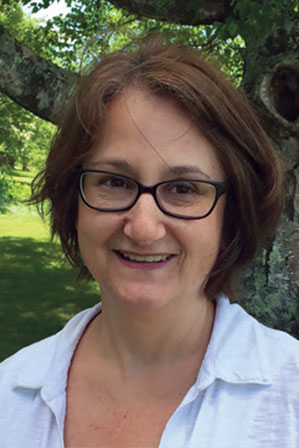It’s Time
Letter from the Editor
BY SHAWN DORMAN

This month’s focus—addressing race, diversity and inclusion—has been on the calendar since the end of last year when we set 2021 themes. It is not a new topic, nor a new problem; but this moment in our country’s history may offer a real opportunity for change that is new.
The police killing of George Floyd and all that followed has led to the airing of the Black experience in American diplomacy in a way not widely seen before. As Americans are facing racism and taking stock of how our society and institutions are doing when it comes to equality and inclusion (not so well), so too is the Foreign Service.
For this Journal focus, we have brought together powerful voices for positive change from various vantage points, and we hope their insights and recommendations will contribute to the measures, policies, and even the cultural shifts required to create a Foreign Service that can live up to American ideals of equality and inclusion.
Leading the discussion, Deputy Assistant Secretary Mirembe Nantongo presents an inspiring look at why and how diversity (about people) and inclusion (about culture) matter and what the State Department is doing to deal with both. She begins by painting a powerful image of diversity vs. inclusion—diversity is being invited to the party, while inclusion is being asked to dance.
This concept, originally introduced by diversity advocate Verna Myers, inspired the wonderful cover art. We commissioned Black American artist Alexandra Bowman to bring the vision to life. We trust you will agree that she did.
In “Creating a Culture of Inclusion at State,” Ambassador (ret.) Gina Abercrombie-Winstanley puts forward specific recommendations on building accountability into the system to ensure that promoting inclusion is everyone’s responsibility. And Ambassador (ret.) Peter F. Romero suggests specific ways the Foreign Service can truly look like and represent America.
In “Diversity at State: A Dream Deferred and a Collective Responsibility,” FSOs Ana Escrogima, Lia Miller and Christina Tilghman offer an honest assessment of how well the Pickering and Rangel Fellowships have done in advancing diversity at State, and what should change.
Senior FSO Julie Chung shares her deeply personal story in “The Making of a Real American Diplomat.”
In a critical look at barriers to advancement for people of color in the Foreign Service, FSO Patrice Johnson tells us “It’s Not Just About Intake: A New Approach to Advancing Diversity.”
And we dove into the FSJ Archive to resurface a selection of articles on diversity in the Foreign Service going back to 1963.
AFSA’s legacy on advancing diversity is mixed, and while it is fair to say the association did not always lead on the issue, it is aiming to play a productive role today in raising and advocating recommendations emerging from the Foreign Service community—through AFSA surveys and meetings and through the affinity groups (who will weigh in next month on these pages).
Our cover stories honor the 75th anniversary of the establishment of the United Nations. Ambassador (ret.) Jeffrey Feltman shares his insider experience as U.N. Under-Secretary-General for Political Affairs, explaining why “U.N. Relevance Depends on U.S. Leadership.” Ambassador (ret.) James Dandridge brings us a story from the organization’s beginnings in “Ralph J. Bunche, U.N. Architect.”
And following our focus on pandemic diplomacy last month, we present a firsthand account from the 2020 Repatriation Task Force that brought home more than 100,000 Americans. Chris Meade, Holly Adamson, Merlyn Schultz and Fany Colon de Hayes—all with the State Department Operations Center’s Office of Crisis Management and Strategy—tell us about “Bringing Order Out of Crisis: Behind the Scenes of a Task Force.”
The FSJ strives to shine a light on the realities, diverse perspectives and real recommendations on how to move diplomacy forward. Given the groundswell of attention to diversity and inclusion—and the opportunity of this moment—we shifted our October focus to continue this conversation, which we invite you to join by writing to us at journal@afsa.org.

